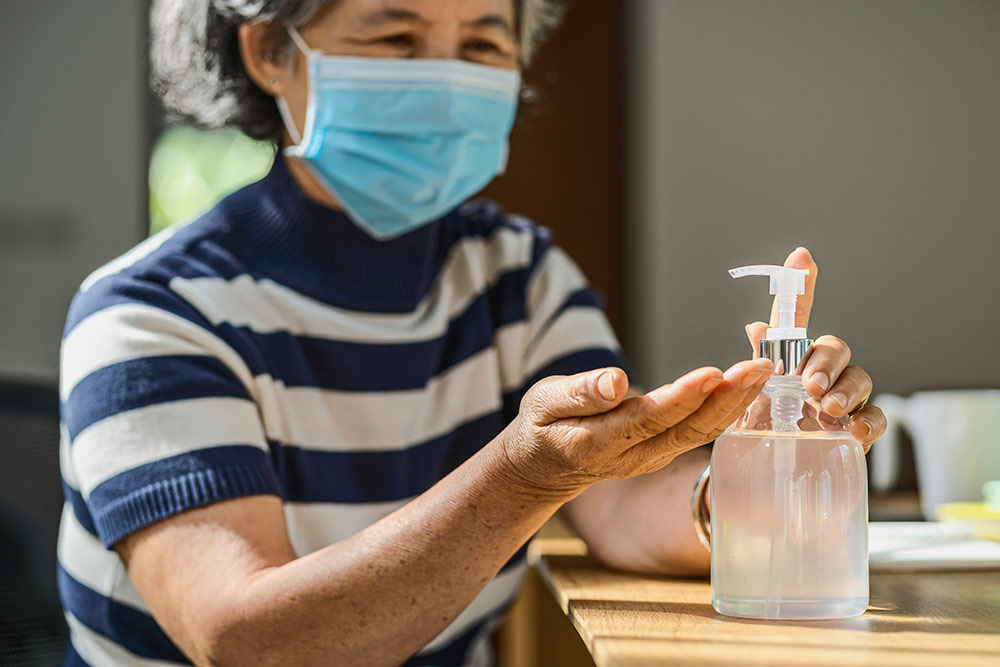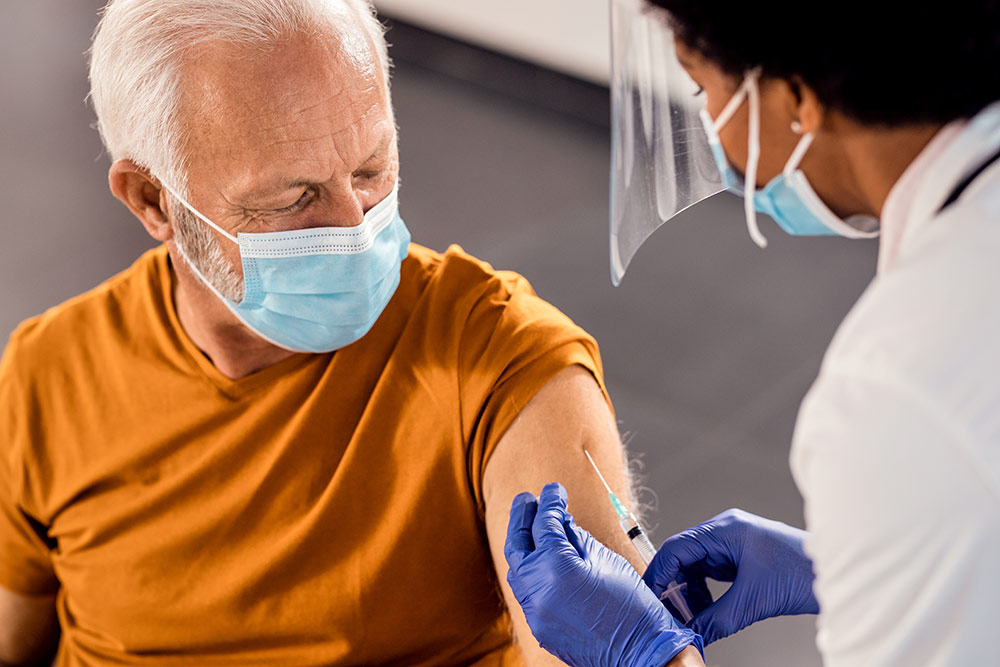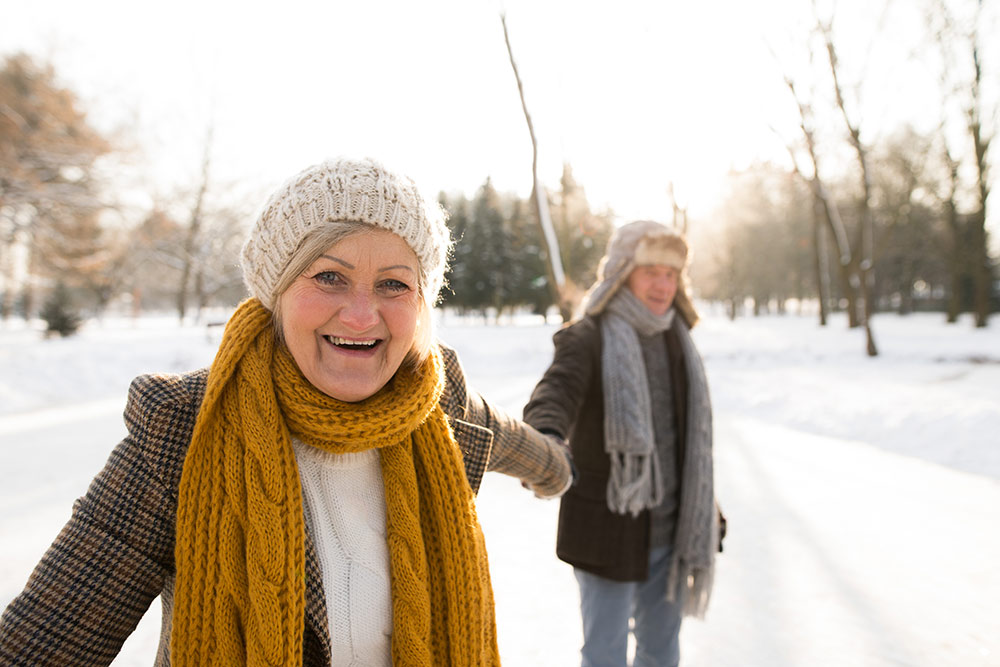Winter has officially come. While young adults may enjoy making snow angels, this cold winter weather can have many unforgiving consequences for older adults.
Most seniors appreciate the crisp air of autumn but not the freezing temperature of the winter season. The harsh winds and gloomy atmosphere that comes with it makes this season extra challenging for many older adults.
Surveys had revealed that seniors had met their untimely demise because of the risk that comes with the season. Some of this includes:
- Falling or slipping accidents resulting in fractures.
- Winter illnesses like pneumonia, colds, joint pains, and heart issues.
- Winter blues causing seniors to experience depression, loneliness, and an increased feeling of isolation.
- Hypothermia, oxygen depletion, and dehydration
Avoid these unpleasant circumstances by keeping your physical, mental, and emotional needs in check. Staying healthy in winter can be challenging, but it is possible! Here are some helpful steps to get you started.
Practice Proper Hygiene and Cleanliness
With the current health crisis, observing proper hygiene should become the number one priority of seniors to stay healthy. Be attentive and maintain cleanliness in your environment at all times.
Start by washing your hands properly every time you go out or handle something that came from outside your home. Disinfect these items and your house every now and then.
If you are a senior living with other relatives, then you should also encourage household members to observe these practices.

Practice the Safety COVID-19 Guidelines
Proper hygiene alone does not cut it, especially if you are already a senior with a compromised health stature.
With the virus’s rampant spread, staying healthy in winter entails following the government’s safety guidelines. This includes:
- Avoiding large holiday crowds.
- Always wear protective equipment like masks and face shields correctly.
- Bringing alcohol or sanitizer at all times.
- Practice social distancing by staying 6 feet apart from other people in public spaces.
These safety protocols allow seniors like you to prevent getting and spreading the disease, making your holidays much more delightful.
Exercise and Eat Healthy
The winter season always collides with everyone’s two favorite holidays–Christmas and New Years!
This means that your stomach will be busy digesting tasty holiday specialties like turkey, honey ham, roast beef, and mashed potatoes. Not to mention the oh so sweet desserts served right after dinner.
Unfortunately, these festive meals contain a lot of ingredients and substances that can turn your body’s health awry. Most meals have many preservatives in them, which can cause harmful effects to the body like increased toxins, high cholesterol levels, and a surge in blood sugar levels.
To stay healthy this winter, make sure to eat nutritious meals and pair them with regular physical activity. Some of the best habits to keep in mind include:
- Adding diversity and color to your meals like a vegetable side dish or fresh fruit salad for dessert.
- Stick to nutritious foods like lean meat and whole grains.
- Avoid overindulging in comfort foods such as sweet treats, cakes, and pastries.
- Practice regular physical exercises like walking and jogging
- Stick to your workout routine despite the cold weather by working out at home.
- For sunny days during the winter, take the opportunity to get a whiff of fresh air and a healthy dose of Vitamin D from the sun.
Keep up these healthy practices, and you will have no problem staying healthy in the winter season!
Be Winter Ready
Staying healthy also means taking care of your physical well-being and ensuring your safety during this frigid weather. You can do that by winter-proofing your home to prevent any accidents and be ready during emergencies. Some of the things you or your loved one can do for you include:
- Making sure the heater is working.
- Check the stripping on the doors and windows. Have someone check the stability of your roof in case of too much snow.
- You can have a loved one install walkway bars on the driveway or porch.
- Check your clothes and make sure you have all the winter essentials in there.
- Pack the fridge and kitchen cupboards in case of terrible storms or blizzards.

Strengthen Your Immunity
Besides eating healthy, another way to boost your immunity is to get the proper vaccinations against common winter illnesses.
Contrary to popular belief, kids are not the only ones who need vaccinations. Older adults, especially those 50 and above, need to check their immunity shots to protect themselves from several diseases.
According to Harvard Medical, seniors need to get their annual flu shot, pneumococcal vaccine, shingles vaccine, and tetanus shot in preparation for this winter season.
Furthermore, doctors advised seniors to get their flu and pneumonia shots so there won’t be any COVID-19 scares since the former diseases have pretty much identical symptoms as the latter.
Manage Your Mental Health
Seasonal depression and the winter blues have been a long-standing mental health problem of older adults during this season.
The lack of sunshine, minimal human contact, and limited activities result in varying degrees of loneliness and depression.
Seniors had already endured over six months of being quarantined in their own homes; the factors mentioned above will only contribute to the negative feelings they already have.
Prevent this winter woe from turning into a full-blown mental health problem by:
- Staying connected with loved ones as much as possible.
- Managing your holiday stress.
- Making time for yourself by doing the things that make you happy and relaxed.
- Keeping in touch with long-distance friends through video calls and chats.
Attend Doctor’s Appointments
All these tips for staying healthy would actually be useless if you skip your regular health check-ups.
Because of your age, all seniors need to be regularly checked by a physician to treat or prevent diseases from ever developing. Doctors also give supplements and proper vitamins to help strengthen your body.
This winter, make sure to attend every doctor’s appointment, especially if you have an underlying medical condition or a current unpleasant feeling.
You can have a friend, loved one, or healthcare staff accompany you to and from your doctor.



